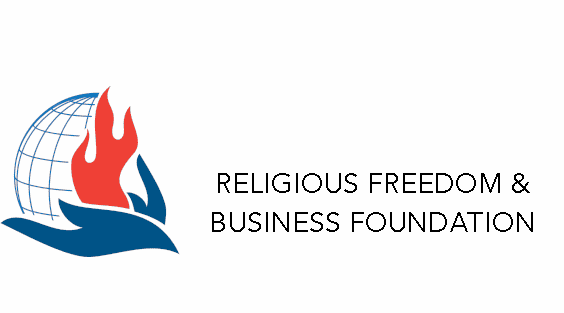The House of Commons of Parliament Building, Ottawa.
20897988 © WANGKUN JIA | DREAMSTIME.COM
by Marc Schaus
For anyone who wants to follow the international developments of secularism worldwide, resources offering extensive regional updates can be hard to find. The Religion News Service is always indispensable, the National Secular Society’s near-daily headlines from around the world (particularly within the UK) can be great for European coverage – and, of course, you can always count on Patheos.
Here in my home country of Canada, we sometimes receive less coverage for secular-specific events happening overseas or down south unless they generate a great deal of discussion or the story just happens to go viral. And it recently occurred to me, while sifting through European headlines for traces of secular developments happening around the Union: maybe other countries out there could be curious about what’s happening in Canada the same way I’m curious about what’s happening out there.
As another developed and increasingly secular Western nation, we do certainly face many of the same issues as countries like the US, the UK, Australia and others where secular issues sometimes receive more coverage. But I assure you: these issues are certainly alive and hotly debated in this country. So for readers who may be curious how secular issues are currently shaping up in Canada these days, perhaps a survey of recent headlines from a local could help.
Pro-Secular Marriages: Increasingly Recognized but Not Nationwide
We’ve noticed that many secular folks in the world are currently fighting to legalize humanist officiant marriage ceremonies and have them recognized by their respective states. We are fighting the same fight over here in Canada on a federal level, although we have made smaller regional progress recently.
In Ontario, humanist officiant marriages are legally recognized under civil marriage arrangements. That would be the most “outwardly secular” form of civil marriage (going loud and proud under a humanist banner). Humanist Canada now offers a full course on certification to offer these services, which is also a helpful way of finding out where they are being performed.
Other provinces do have civil union officiants, which is still secular, but do not carry a label of group affiliation. In Manitoba and Saskatchewan, “marriage commissioners” can apply to the province’s Department of Vital Statistics and register marriages thereafter. The tendency among local officiants who are pro-secular is to offer a more off-the-record approach in employing non-religious themes. The province of Alberta is similar in offering civil marriages, but reportedly no civil officiants are registered to any humanist groups. Surprisingly, over in British Columbia where a new poll recently revealed that an overwhelming seven of every ten citizens are non-religious – and a quarter of people simply do not believe in any higher power – secular civil officiants are still not legally recognized.
Assisted Dying: Hard-Fought Victory, Increasingly Prevalent
As in the US, Canadian majorities have historically opposed medically assisted dying on religious grounds. Arguments about the sanctity of life, the grave and immoral act of taking one’s own life, etcetera, etcetera. But much of that changed when Canada’s Medical Assistance in Dying law finally passed last year on June 17, 2016.
Canada’s legislation on assisted dying effectively legalized the practice of doctor-assisted suicide and mandated that public hospitals, hospices and clinics would offer the service. But the law also provided exceptions for health institutions which did not want to offer it (predictably Catholic hospitals and similar institutions). This is particularly so within my own province of Ontario, where the Catholic Health Alliance of Canada operates more thoroughly. The caveat for such hospitals is that unwilling centres must offer the capability of transferring patients to a facility which does offer the service (abortion, which is also legal but contested, typically works the same way). Secular debates in our country currently center on whether such institutions, as publicly-funded facilities, must provide a procedure legalized and mandated on a federal level. Or, of course, if it’s actually more secular to let people simply go to the institutions they prefer and not force all locations to offer all services.
For an up to date analysis: as recently as September of this year, the Council of Canadian Academies was asking for countrywide input on reviewing the nation’s assisted dying laws. And for comparison: even though our culture is relatively similar to Americans just south of our border, medically assisted dying is still against the law down there. Even as recently as this September, courts were still ruling against it.
Actively Pro-Secular Legislation: Canada Has its Own Developing Laïcité
When it comes to European secularism, we Canadians sometimes hear about the fiery French brand called laïcité. Sadly, our exposure to this more active form of secularism usually only arrives in headlines of burkini bans on French beaches and anti-religious activism following reprehensible acts of terror. But actively pro-secular forms of legislation (as France’s laïcité has become known for) represent a key debate currently going on here in Canada also. Which is to say, we hear ongoing debates about where precisely we ought to draw the line between a necessary church/state separation – and infringements on religious freedom in a highly multicultural society.
As a bilingual country of English and French, Canada does have its very own mostly French province of Quebec – which interestingly does have its very own brand of budding French-Canadian laïcité. And like its European counterpart, French-Canadian laïcité is focused on establishing social integration among cultures on a larger legal level. For example, right now, the controversial Bill 62 has recently just passed in the province on October 18th. The bill bans the use of facial veils while accessing public services and is widely seen as targeting the niqabs and burkas worn by Muslim women.
As expected, banning the giving or receiving of municipal services such as riding a public bus while veiled has not gone unprotested. And things are sure to be controversial from here on out, as even the last Mayor of Montreal (Quebec’s largest city) had just flouted the bill and its enforceability. But while this bill is still controversial here, supporters elsewhere still hail legislations like these for promoting social integration and forging a distinct cultural identity (coming at the expense of one’s own identity is not seen as a negative to some).
Elsewhere in Quebec, tensions with a Muslim minority have recently taken on other forms. The Quebec Islamic Cultural Centre was attempting back in July to secure private cemeteries in which only Muslims could be buried. The contention was that services offered by regional cemeteries conflict with the Muslim faith, such as cremation and the burying of ashes. Debates here have centered on what would be more secular: allowing a group to practice their faith as-is, so long as it does not inspire hatred – even if a practice like burial segregation does impose a larger cultural segregation – or, if it’s more secular to legally mandate that all lots zoned for burial uses follow precisely the same public services and requirements.
The group tabled a proposal for a patch of land which was ultimately put up to vote by the individuals living immediately next to the land itself. This amounted to just a few dozen people deciding the fate of thousands, so it naturally drew media exposure. The motion ultimately failed by only a few votes (a narrow 19-16 margin). However, more recently on August 4th, the group did legally secure a slightly smaller patch of land to commence a Muslim-only cemetery.
Abortion: Legal but Contested
Abortion remains a secular issue because the groups opposing it most vehemently are often (if not outright religious institutions) funded by church backers. While abortion is currently legal in Canada and has been for decades, the anti-abortion movement is still going strong with fresh young recruits. Headlines here have recently featured the court battles between those who wish to create graphic anti-abortion ads in public spaces – and those who do not wish to see such things. Some pro-life groups today may have less religious affiliation, though they are continuing a debate started by those who did over issues which still apply heavily to other secular issues.
One anti-abortion group in British Columbia was recently banned from placing an “Abortion Kills Children” ad on public buses. The ads featured grossly disfigured near-fetuses supposedly early on in gestation and the web address “endthekilling.ca” emblazoned alongside. They were banned after an opposition rose to the obscenity of their images and the leading statement of calling the fetal groupings “children”, following a judgement from the B.C. Supreme Court.
Meanwhile, over in Ontario, the same group has championed billboards over bus signs. Courts tend to work a bit differently from province to province and the group was ultimately allowed to run the same graphic content. Pro-life protesters walking around busy Toronto streets carrying signs depicting graphic images of aborted fetuses garner plenty of opposition from people who do not want to see such things (or need to explain to their children what the signs mean). But while Ontario courts have still erred slightly more on the side of personal liberty, legislation has recently been tabled to ban anti-abortion protests from taking place right outside of clinics.
The secular debate here is whether it’s more acceptable to let people indulge their freedom of expression to an extent other folks find “obscene” or not. And the obvious extension of these court rulings applies to religious liberties as well. Or hate speech liberties. The real question here, then, becomes what ought to constitute obscenity from a majority standpoint and whether the context of writing such things online or handing out flyers ought to matter less than displaying slogans on street corners.
Ultimately, then, we may be lagging in progress on a few of these (and other) secular issues – but Canada does provide a fascinating case study for deeper context in how these debates can play out.
 Marc Schaus is a debut Canadian author who has recently published his first book on the rise of secularism and religious nonbelief around the world. Marc has previously completed research in neuroscience labs mapping out neural networks in the brain – and has appeared in digital print here on Patheos and The Huffington Post. His primary research focus, now, is how the transition from belief to nonbelief “works” in the human brain and why twenty-first century life is creating a cognitive advantage for secular, so-called superstitionless belief systems. His latest book, Post Secular: Science, Humanism and the Future of Faith was published this year.
Marc Schaus is a debut Canadian author who has recently published his first book on the rise of secularism and religious nonbelief around the world. Marc has previously completed research in neuroscience labs mapping out neural networks in the brain – and has appeared in digital print here on Patheos and The Huffington Post. His primary research focus, now, is how the transition from belief to nonbelief “works” in the human brain and why twenty-first century life is creating a cognitive advantage for secular, so-called superstitionless belief systems. His latest book, Post Secular: Science, Humanism and the Future of Faith was published this year.
















